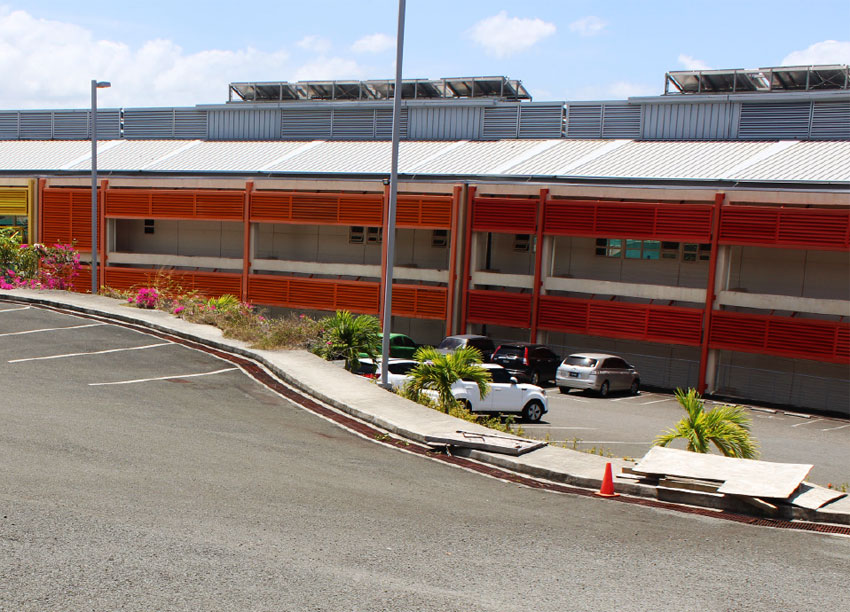
The OKEU Hospital faces a significant challenge in accommodating patients seeking treatment. The management team at the Millennium Heights Medical Complex is actively addressing this issue. During a recent media briefing, the MHMC medical team discussed the challenges faced by health facility staff and proposed measures for better patient care.
Dr. Lisa Charles, Director of Clinical Services, highlighted the overcrowding at the Accident and Emergency (A&E) Department. Patients with critical ailments, such as Non-Communicable Diseases (NCDs), require more resources and bed space for treatment. The boarding of admitted patients waiting for beds contributes to the overcrowding.
She added that the overcrowding issues impedes their ability to deliver care to their emergency patients, it overwhelms the staff and resources and it creates challenges to maintain the standard of care for the public that is acceptable, and for the staff it poses huge challenges in providing proper patient care.
Unfortunately, the current number of beds falls short of the World Health Organization’s recommendation of two beds per 1,000 population. Saint Lucia, with a population exceeding 180,000, should ideally provide 360 in-patient beds. However, the current figure stands at 237 beds (66% of the required amount). The OKEU Hospital has 122 beds, Tapion Hospital has 30, St. Jude Hospital has 49, and the National Mental and Wellness Centre has 36 beds. Additionally, there are 36 acute psychiatric beds available.
Dr. Charles attributed the decline in bed capacity to the 2009 fire that affected St. Jude Hospital. The transition from Victoria Hospital to OKEU Hospital further reduced the number of beds. Currently, there is only one bed per 1,000 of the population.
The issue of Inadequate inpatient beds at the OKEU is problematic and oftentimes, patients are boarded in the Emergency Department (ED).
Dr Charles said that to meet the minimum WHO requirements, the health system needs 123 more beds at the MHMC, which amounts to 30 Acute care beds , 30 Step-down/Secondary Care Beds.
In addressing the matter, Dr Charles said, there needs to be a holistic approach that involves working with the families and the individual “to support early discharge of patients.”
She said, in many cases, patients are released to their families to provide home care
Dr Charles proposed that providing short to medium term solutions would require – Increase bed capacity internally at MHMC; Build individual and community capacity to support earlier discharge of patients; Healthier lifestyles, proactive health maintenance and compliance with medications and other recommendations from care providers.
Head of Accident & Emergency Department – Dr. Bernadette Joseph-Labadie reiterated that staffers face these challenges on a daily basis. This situation is further compounded by an increase in motor vehicular accidents, she said, adding there is also the issue of violence resulting in injuries from gunshot wounds and stabbings.
She said, presently with a 23-bed facility having to cater for more than 30 patients per day hampers their ability to cater for emergencies and to provide a bed for every patient who needs one.
The medical practitioner noted that improvements towards better provision of healthcare will include; the establishment of a Transition Unit, MHMC Secondary Care Hospital, and to redesign of the Accident and Emergency waiting area.
Chief Executive Officer at the MHMC, Dr. Dexter James sated that the launch of the Secondary Care Hospital will cater for short-term and long-term improvements in the provision of healthcare to citizens.
He disclosed that the unit was in an advanced stage of providing these facilities, and are in Phase 1 of this development.
Dr James spoke of the challenges associated with the social cases. “The space that is occupied by the social cases is the exact space that we need now to be able to retrofit and upgrade to give us the additional beds,” he said.
The CEO said it was important for these individuals to be released in the care of their families to continue their treatment at home, supported by the Secondary Care Hospital unit.













